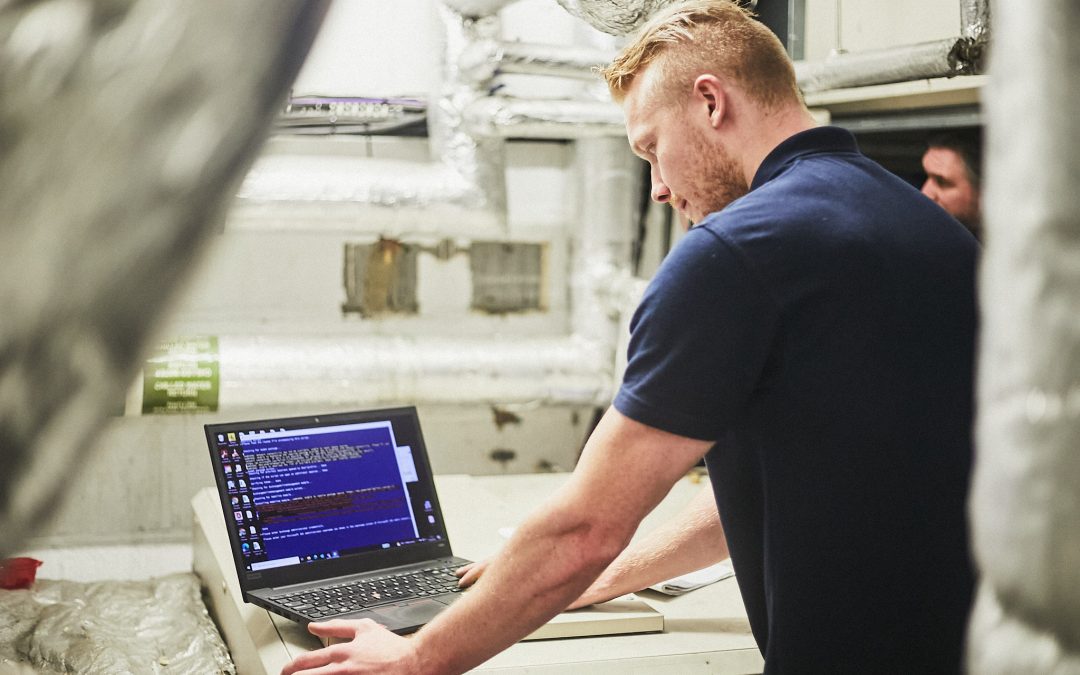Why AI cannot replace engineers in HVAC/M&E Maintenance Industry
The Heating, Ventilation, and Air Conditioning (HVAC) sector plays a vital role in ensuring indoor comfort, energy efficiency, and environmental sustainability. As artificial intelligence (AI) continues to advance, there is a growing debate about its potential to replace human engineers in various industries, including HVAC.
While AI offers innovative solutions and automation options, there are many reasons why it cannot replace engineers in the HVAC sector. In this blog I will look further into the complexities of HVAC systems and highlight the irreplaceable role that engineers play in designing, optimising, and maintaining these systems.
Unique environments
HVAC systems operate in various environments, each with its own unique set of challenges and requirements. Engineers bring a their own understanding to the table, considering various factors such as building design, occupancy patterns, climate conditions and local regulations. Although AI may be extremley advanced in data processing, an Engineers’ expertise ensures that HVAC systems are tailored to specific environments, leading to optimal performance, energy efficiency, and user comfort.
Problem-solving
The HVAC industry often presents challenges that require adaptability and rapid problem-solving. Engineers are skilled at identifying issues, diagnosing problems, and implementing solutions in real-time. While it is understood that AI can automate routine tasks and diagnostics, they struggle with unexpected situations. An Engineer’s ability to think freely critically enables them to address complex issues quickly, minimising any downtime.
User comfort is a top priority in the HVAC industry. Engineers consider human factors, behavioral patterns, and user preferences when designing and optimising HVAC systems. Whereas AI lacks empathy and the ability to understand human comforts, making it incapable of creating personalised solutions. Engineers ensure that HVAC systems not only meet technical requirements but also provide occupants with an environment that enhances their quality of life.
Regulations and safety standards
HVAC systems are subject to various regulations and safety standards that vary across regions and industries. Engineers are well-versed in these requirements and ensure that HVAC systems adhere to all relevant guidelines. AI might assist in data analysis and compliance checking, but engineers possess the judgment and awareness required to make decisions that prioritise safety and legal compliance.
HVAC lifecycle
The lifecycle of an HVAC system extends beyond its initial installation. Engineers are responsible for ongoing maintenance, monitoring, and optimisation to ensure consistent performance and energy efficiency. They use their experience and expertise to improve systems over time, considering factors like wear and tear, changes in occupancy, and evolving technology. AI can aid in predictive maintenance, but it cannot fully replace the holistic understanding that engineers bring to the ongoing management of HVAC systems.
Evolving technologies
The HVAC industry is evolving rapidly, with advancements in energy-efficient technologies, renewable energy integration, and smart building systems. Engineers are at the forefront of innovation, conducting research, experimenting with new technologies, and driving the sector’s progress. AI can assist in data analysis and simulations, but cannot provide intuition, curiosity, and creativity which are crucial in pushing the boundaries of what each system can achieve.
Artificial intelligence absolutely has the potential to enhance various aspects of the HVAC sector, from data analysis to predictive maintenance. However, the intricate nature of HVAC systems, the diverse contexts they operate in, and the multifaceted challenges they pose necessitate the continued involvement of human engineers. Engineers bring a unique combination of contextual understanding, creativity, problem solving ability, and humaine thinking that AI cannot replicate. The future of the HVAC industry lies in a partnership between engineers and AI, where each contributes its strengths to create sustainable, efficient, and comfortable indoor environments.


